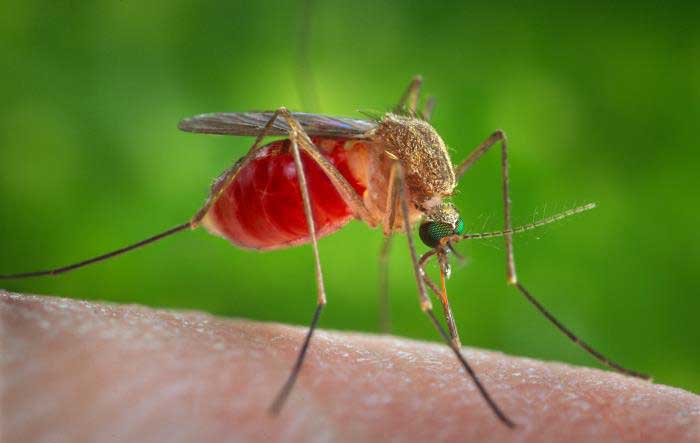The year’s first human case of West Nile Virus has been reported in Holmes County. Positive mosquito samples have been detected in Harrison, Hinds, Jackson, Lincoln, Madison, and Rankin Counties.
Transmission
West Nile virus is most commonly spread to people by the bite of an infected mosquito. Mosquitoes become infected when they feed on infected birds. Infected mosquitoes then spread West Nile virus to people and other animals by biting them.

In a very small number of cases, West Nile virus has been spread through:
- Exposure in a laboratory setting
- Blood transfusion and organ transplant
- Mother to baby, during pregnancy, delivery, or breast feeding
West Nile virus is not spread:
- Through coughing, sneezing, or touching
- By touching live animals
- From handling live or dead infected birds. Avoid bare-handed contact when handling any dead animal. If you are disposing of a dead bird, use gloves or double plastic bags to place the carcass in a garbage can.
- Through eating infected animals, including birds. Always follow instructions for fully cooking meat.
Symptoms
No symptoms in most people. Most people (8 out of 10) infected with West Nile virus do not develop any symptoms.
Febrile illness (fever) in some people. About 1 in 5 people who are infected develop a fever with other symptoms such as headache, body aches, joint pains, vomiting, diarrhea, or rash. Most people with febrile illness due to West Nile virus recover completely, but fatigue and weakness can last for weeks or months.
Serious symptoms in a few people. About 1 in 150 people who are infected develop a severe illness affecting the central nervous system such as encephalitis (inflammation of the brain) or meningitis (inflammation of the membranes that surround the brain and spinal cord).
- Symptoms of severe illness include high fever, headache, neck stiffness, stupor, disorientation, coma, tremors, convulsions, muscle weakness, vision loss, numbness and paralysis.
- Severe illness can occur in people of any age; however, people over 60 years of age are at greater risk for severe illness if they are infected (1 in 50 people). People with certain medical conditions, such as cancer, diabetes, hypertension, kidney disease, and people who have received organ transplants, are also at greater risk.
- Recovery from severe illness might take several weeks or months. Some effects to the central nervous system might be permanent.
- About 1 out of 10 people who develop severe illness affecting the central nervous system die.
- Recovery from severe illness might take several weeks or months. Some effects to the central nervous system might be permanent.
- About 1 out of 10 people who develop severe illness affecting the central nervous system die.
Prevention
The Mississippi Department of Health offers the following common-sense advice to reduce the chance of contracting the virus:
- Use a recommended mosquito repellent.
- Cover arms and legs with long sleeves and long skirts or pants.
- Avoid mosquito-prone areas in the mornings and evenings, when mosquitoes are most active.
- Remove sources of standing water around your home where mosquitoes can breed, and make sure window screens are in good condition.
Last year, only 7 cases of the mosquito-borne illness were identified in Mississippi.







